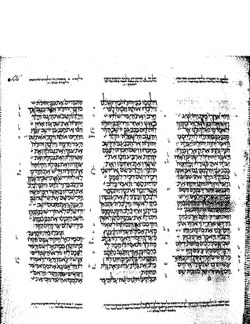| Judges 17 | |
|---|---|
 The pages containing the Book of Judges in Leningrad Codex (1008 CE). | |
| Book | Book of Judges |
| Hebrew Bible part | Nevi'im |
| Order in the Hebrew part | 2 |
| Category | Former Prophets |
| Christian Bible part | Old Testament (Heptateuch) |
| Order in the Christian part | 7 |
Judges 17 is the seventeenth chapter of the Book of Judges in the Old Testament or the Hebrew Bible. [1] According to Jewish tradition the book was attributed to the prophet Samuel, [2] [3] but modern scholars view it as part of the Deuteronomistic History, which spans in the books of Deuteronomy to 2 Kings, attributed to nationalistic and devotedly Yahwistic writers during the time of the reformer Judean king Josiah in 7th century BCE. [3] [4] This chapter records the activities of Micah of Ephraim. [5] belonging to a section comprising Judges 17 to 21. [6]
